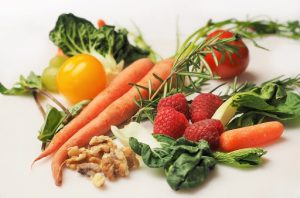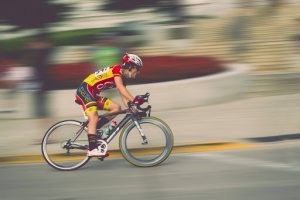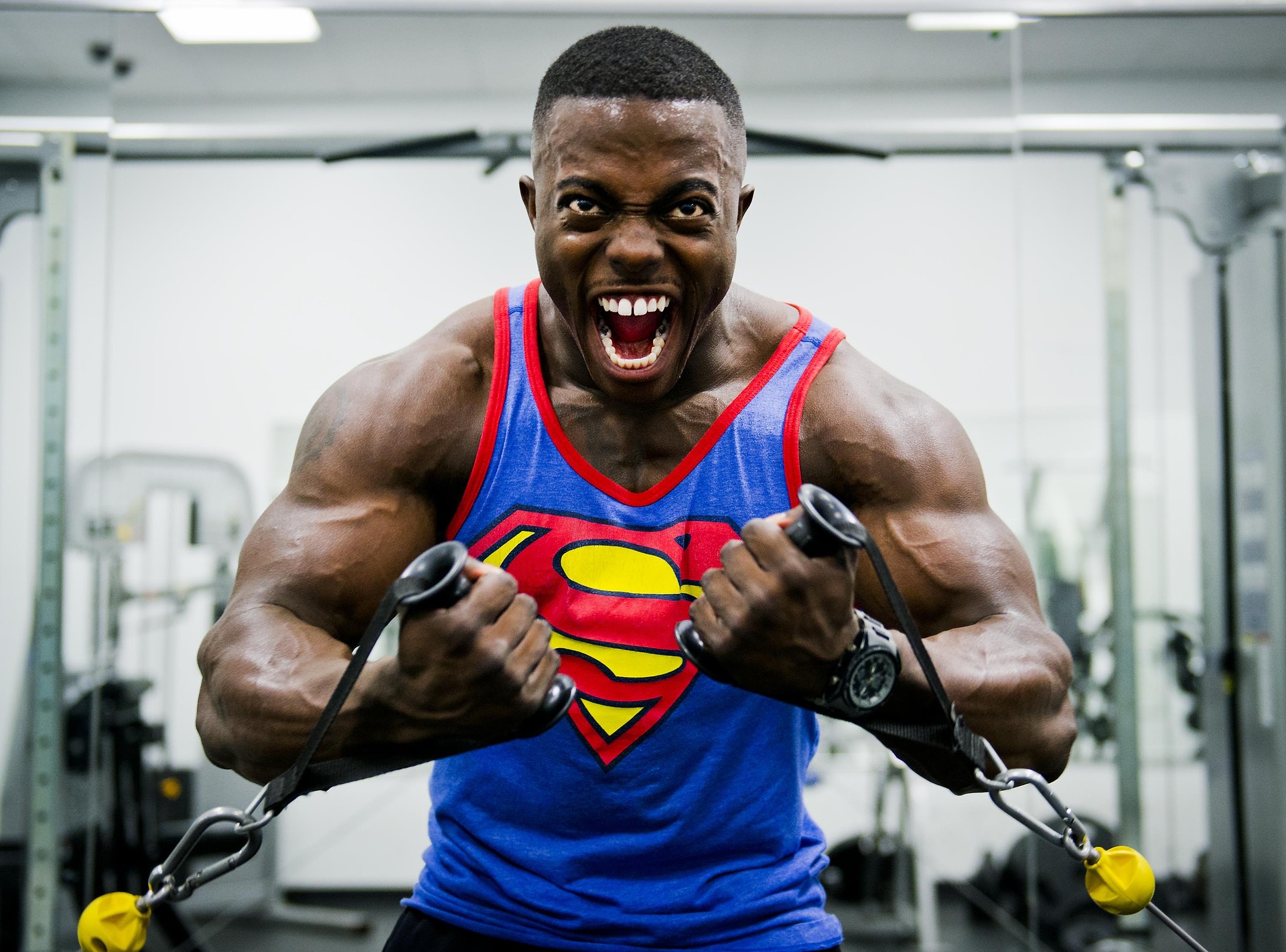Is a Plant-based Diet Good for Athletes and Muscle Growth?
You’ve probably heard this many times that exercise and diet go hand in hand. This is all the more pertinent to athletes, who have to be in their best shape to perform their best. So is a plant-based diet good for athletes and muscle growth?

For a long time, the common understanding among athletes and bodybuilders was that eating meat is the only way to get a lot of protein. However, this dynamic is rapidly changing as more and more athletes are switching to a plant-based diet. Their objective is pretty simple: eat healthily, stay fit, and perform well.
Many elite athletes have already made the shift. You can watch the plant-based documentary ‘The Game Changer’ on Netflix that promotes a vegan diet for athletes. Produced by Arnold Schwarzenegger, this plant-based movie features runner Scott Jurek and Olympic weightlifter Kendrick Farris, among many others.
The documentary aside, there’s scientific proof that shows a vegan or plant-based diet is quite healthy for athletes, just like anyone else.
What Nutrients Do Athletes Need the Most?
Is a plant-based diet good for athletes and muscle growth in bodybuilders? It’s important to first understand what nutrients athletes need in the first place.

They are all humans, so they need the same nutrients as everybody else. However, some nutrients take precedence, as they help athletes and bodybuilders achieve their performance goals. Again, your health has a direct impact on your performance, no matter how much you train.
Here are the essential nutrients an athlete needs:
Carbs
Carbohydrates are the preferred fuel for our bodies. Think of it as a high-octane gas for your car. These provide a lot more energy to our body than any other nutrient, which is why it’s pretty important for athletes.
Now, carbs are a difficult one. While they may provide energy, they can also cause problems, such as weight gain. This is where a plant-based diet can help make the distinction between good carbs and bad carbs.
Protein
Protein may not provide energy, but it’s crucial for muscle building and repair. The amount of protein you need depends on your fitness goals. An average person needs 1.3 g of protein for every pound of their body weight.
For athletes, protein is all the more important because it can help with muscle recovery. For bodybuilders, it’s essential for muscle growth. They obviously need to eat more of it than an average person.
Contrary to the common misconceptions, a plant-based diet can provide essential protein for the body. You just have to know what plant-based foods are protein-rich.
Calcium
The benefits of calcium in the body align with all athlete goals. This mineral is important for bone growth and strength. It also helps with nerve impulses and muscle contraction.
Adults need at least 1000 mg of calcium every day. For athletes, this number can even be 1200 mg. Many whole foods in the plant-based diet are rich in calcium, including your leafy greens, almonds, cereal grains, and seeds.
Zinc
Zinc is quite essential for athletes, who a lot of times are not getting enough of it. This mineral is important because it helps with metabolism and protein utilization. It can improve thyroid function, which, in turn, can enhance performance over time.
Much like protein, many people assume zinc is hard to get through a vegetarian diet. That’s not true as some plant-based foods are quite rich in zinc. These include whole grains, legumes, chickpeas, cashew nuts, chia seeds, and breakfast cereals.
Iron
Iron deficiency can be a serious problem for an athlete. Therefore, they need their fair share of iron every day. This mineral is credited with the metabolism of essential nutrients like carbs, protein, and fat.
Plant-based foods like raisins, dried fruits, kale, spinach, quinoa, chickpeas, and tofu all are rich in iron and can help athletes reach their recommended daily intake.
B Vitamins
B vitamins perform crucial functions such as keeping the blood healthy, improving energy metabolism, and repairing muscles. Whole grains are rich in B vitamins, and can easily provide the required daily intake of each vitamin in this group.
Is a Plant-based Diet Good For Athletes?
The research into the effects of plant-based and vegan diets on athletes and bodybuilders is still ongoing. But there’s still enough scientific data to show that this type of diet is indeed quite healthy, and perfect for today’s athletes.

Athletes essentially get the same benefits as a non-athlete. However, the benefits can be even bigger if they tweak the diet and follow a pure plant-based athlete diet, one that provides all the essential nutrients above.
Here’s why a plant-based diet is good for athletes:
Better Heart Health
Your heart health is everything, as it’s a central organ providing blood and oxygen to the entire body. A plant-based diet can significantly improve heart health by way of weight control, cholesterol reduction, and blood pressure regulation.
A large-scale study involving 200,000 subjects found that individuals who ate a rich plant-based diet had a lower risk of heart disease. In comparison, those not following a whole-food plant-based diet had a higher risk.
Athletes are not immune to heart diseases. Some 44% older cyclists and runners had a coronary plaque, according to a 2017 study. Another study found a plant-based diet to be the solution for heart problems in endurance athletes like cyclists and runners.
Anti-inflammatory Effect for Faster Recovery
High cholesterol levels can lead to inflammation in muscles, which can slow down recovery and negatively affect performance. It’s a common side-effect for athletes eating too much meat. On the other hand, a plant-based diet can have anti-inflammatory effects.
A 2015 study about Rheumatoid arthritis (RA) found that individuals who followed a plant-based diet saw their inflammatory scores decrease. In contrast, those who ate a diet with high fats and animal products saw it increase.
Low-Fat Diet
Plant-based diets are naturally low in saturated fats. As a result, it has no cholesterol, which plays a central role in keeping your blood viscose. In turn, more oxygen goes to the oxygen, which is something athletes desire.
High-fat meals can lower arterial flexibility, which can hinder blood flow. On the other hand, whole foods and grains improve arterial flexibility and the diameter of arteries. Not to mention, fat can also result in weight gain, which seriously disrupts athletes’ performance.
More Antioxidants
A plant-based diet is way richer in antioxidants than meat-inclusive diets. Antioxidants deal with the free radical flowing around the body that can result in cellular damage. As a result, these antioxidants help prevent many other diseases, such as cardiovascular diseases and cancer.
Free radicals are also responsible for muscle fatigue, which can reduce recovery and negatively impact performance. Vegetables, fruits, dried fruits, and nuts are incredibly rich in antioxidants.
Weight Maintenance
An obvious and rather popular benefit of eating a whole-food diet is weight loss. Research has continuously shown that a diet rich in whole foods can help reduce weight. One study with 65 overweight individuals found that a plant-based diet helped shed 9.25 pounds.
The same study found that the individuals were able to maintain that weight loss for a one-year period. This is an important benefit for athletes who need to maintain their body weight at all times. This kind of diet actively promotes a lower BMI.
Lower Carbon Footprint
With a plant-based diet, you’re not only keeping your body clean but also the planet. There has been enough evidence to prove that a vegetarian or vegan diet is the best for the planet. With a minimal carbon footprint, this lifestyle can significantly reduce emissions globally.
Why is this important for athletes? They are some of the most sought-after individuals in society. People look up to them and follow their actions. By following a low-emissions diet, they can inspire other people to make similar decisions and save the planet.
Can a Plant-based Diet Improve Performance?
There has not been a lot of research into the physical effects of a whole-food, plant-based diet on athletic performance. However, there has been one study that compared different diets for their respective effects on athletic performance.
This study, which was published in the Journal of the International Society of Sports Nutrition, involved 76 recreational runners. The age range of these participants was 18 to 35 years. Individual groups within this study followed a diet with meat and vegetables, a diet with just vegetables, and lastly, a vegan diet.
Interestingly, the study’s results showed that there were no differences in terms of performance. This study indicates that perhaps there’s no significant enhancement in performance when switching to a plant-based or vegan diet.
This is a single study, and there’s clearly more research to follow. Even if a plant-based diet does not improve performance directly, it does so with the many health benefits it offers.
Think of this diet as a long-term health goal, not just something to run fast at the track. A healthy individual, by default, is capable of performing better, in general, and in athletic activities. In other words, a plant-based diet promotes overall and long-term health in athletes.
Is a Plant-Based Diet Good For Athletes Building Muscle Growth?
Athletes and bodybuilders alike need muscle growth (the latter perhaps more). A lot of people think that eating meat protein is the only way to get big muscles. A plant-based diet can also be a protein-rich diet, depending on your food choices.

Some whole foods are richer in protein than others. It’s not so difficult to gain muscle mass on a plant-based diet if you have the right information at hand.
Caloric Surplus
In general, for bulking up, you have to consume more than normal calories. Bodybuilders usually consume upwards of 2500 calories a day, most of them from protein. This does not change with a plant-based diet: you’re supposed to go into a caloric surplus.
Protein-Rich Plant-based Foods
You would be surprised to find how many plant-based recipes are rich in protein. You just have to consume more of these protein-rich plant-based foods:
- Soy
- Tofu
- Oats
- Brown Rice
- Potatoes
- Lentils and beans
- Nuts and seeds
You can also find plant-based meat alternatives that provide roughly the same amount of protein as you get from real meat. In fact, these don’t have fat, unlike real meat. However, for best results, you want to stick to whole foods more, rather than processed foods like meat-less meat products.
Athletes Following a Plant-based Diet
The plant-based diet is making waves in the sports and athletics world. Some of the biggest names in sports and athletics have gone plant-based. From Formula 1’s Lewis Hamilton to seven-time Grand Slam singles title winner Venus Williams, many elite sports stars are vegan.

Dotsie Bausch, an Olympic medalist cycling champion, is a staunch advocate of a plant-based diet. Even many NFL players have joined the club, including, of course, Quarterbacks Tom Brady and Cam Newton.
It’s not just athletes, plant-based diets are becoming increasingly popular with bodybuilders. What better example than the 175-pound weighing, massively shredded, Nimai Delgado? You might be surprised to know that he has never eaten meat in his life.
Other popular bodybuilders that are vegan include Torre Washington (aka ‘The Vegan Dread), Ryan Nelson, Berto Calkins, and Frank Medrano. These bodybuilders are living proof that you can build massive muscles without eating meat.
Matt Frazier is another name to know when it comes to a plant-based diet for athletes. He’s the founder of No Meat Athlete, a website full of knowledgeable resources for athletes going plant-based. It’s a great place to start your transition if you’re an athlete or aspire to be one.
Wrap Up
Is a plant-based diet good for athletes and muscle growth? It’s one of the best ways to become an athlete. This type of diet can do wonders for your body, allowing you to reach your full potential.
A plant-based athlete is one that makes informed decisions before eating anything. Such an athlete thinks long-term, and not just winning a game, but winning at life.
You may also like: CAN I GET ENOUGH PROTEIN ON A PLANT-BASED DIET?
Below is a Pinterest friendly photo…. so you can pin it to your Veggie Board!!











